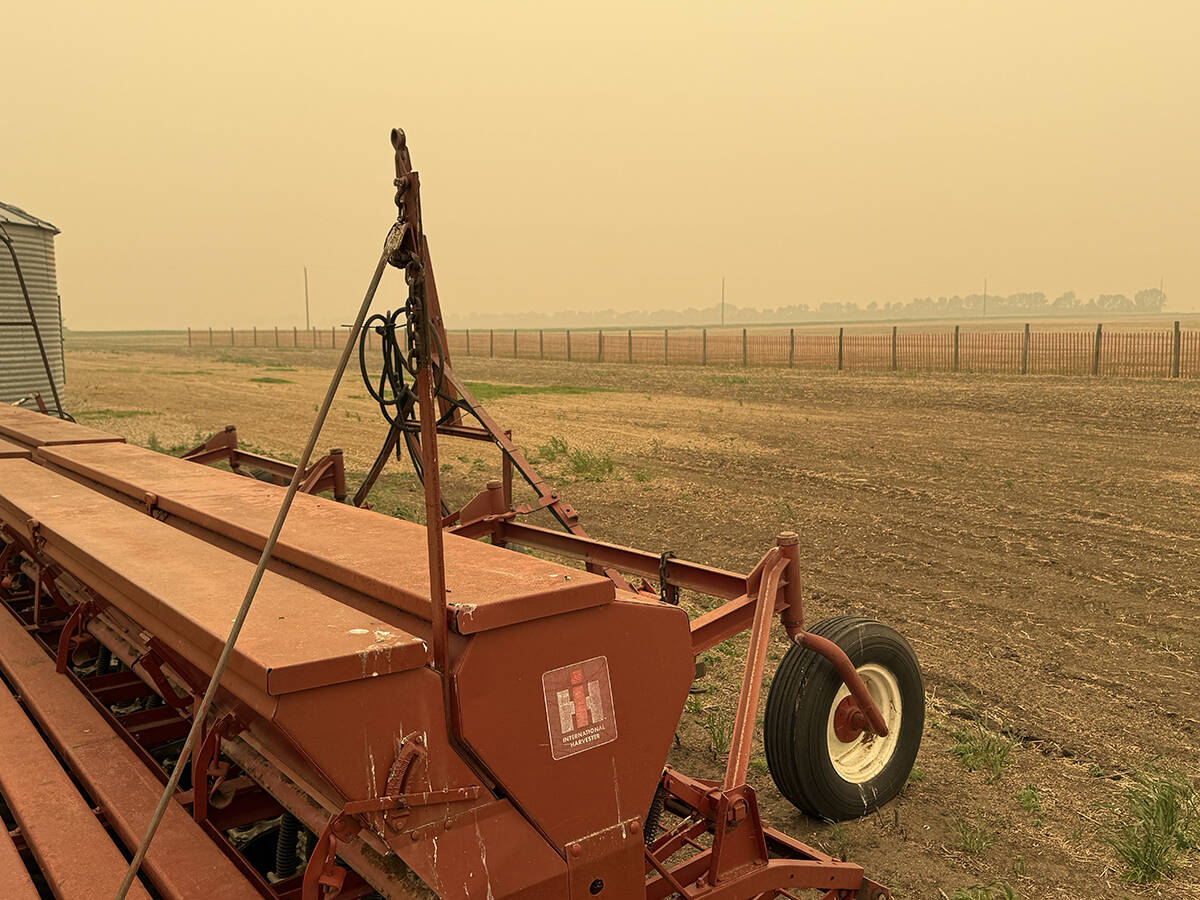The Canadian Food Inspection Agency says it is acting in the spirit of international rules by allowing American ruminants into Canada that have been barred for the past 15 months because of BSE fears.
The American border remains closed to similar Canadian animals because of Canadian BSE, despite a recent North American deal to bring BSE import rules into sync.
Effective March 30, American feeder cattle younger than 30 months and goats and sheep younger than 12 months are allowed into Canada, as well as bulls heading to artificial insemination centres.
Read Also

Wildfires have unexpected upside this year
One farmer feels smoke from nearby wildfires shrouded the July skies and protected his crop from the sun’s burning rays, resulting in more seeds per pod and more pods per plant.
Bone-in sheep and goat meat from animals younger than a year are also permitted for import.
The CFIA said it is a reflection of a recent Canada-United States-Mexico agreement to create standardized BSE-related import rules.
However, the Canadian regulator backed away from an earlier proposal for a broader border opening that would have allowed American cattle born after January 1998, reflecting the period after the U.S. implemented a ban on specified risk material in cattle feed.
CFIA international affairs policy director Billy Hewett said the broader opening was considered premature after public consultations because Mexico and the U.S. still are working on their regulations to comply with international import rules.
He acknowledged that industry representatives have noted that while Canada was proposing to allow cattle up to eight years old, the proposed U.S. rule that has been blocked by the courts would have allowed only young Canadian cattle into the U.S.
Last week’s North American agreement is meant to prevent the border closings that followed isolated BSE discoveries in Canada and the U.S. beginning in May 2003. The three countries agreed to common rules based on BSE guidelines developed by the Paris-based world animal health body the Office Internationale des Epizooties.
Through its new import rules, Canada has gone further than either the U.S. or Mexico, particularly on allowing bulls to cross the border to go to semen production centres.
Hewett said he also understood how frustrating that might be to Canadian cattle producers.
A CFIA statement announcing the agreement on harmonized BSE import rules made the same point.
“Not only does it provide concrete testimony to our belief in the safety of North American beef products but it also reflects the leadership necessary to encourage other countries to follow similar approaches.”
Canadian Cattlemen’s Association president Stan Eby said while the American system still is not adhering to the freer-trade principles the deal espouses, it is important for Canada to be visible in its willingness to live by the international rules it insists other countries also should honour.
“I know producers will look at the closed border and this announcement to expand imports from the U.S. and see an irony, but this is a question of leadership and we support this move.”














